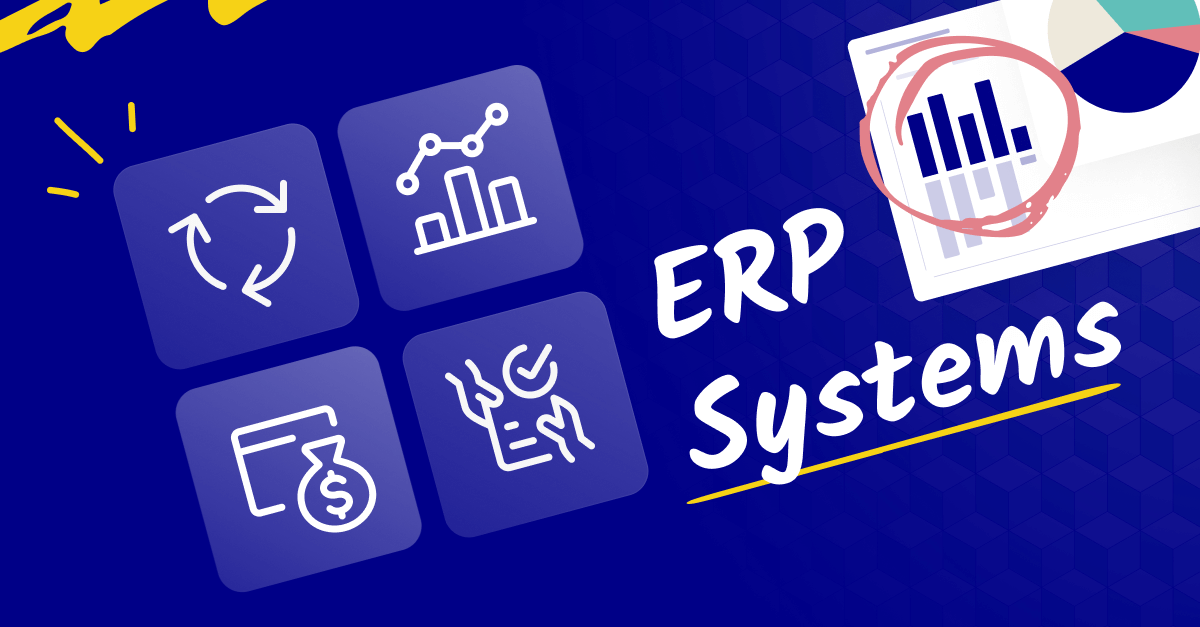With the push towards Industry 4.0 and the MyDigital blueprint, companies across sectors in Malaysia like manufacturing, retail, and services are generating vast amounts of data. Without a centralized system to manage it, inefficiencies can quickly escalate, leading to lost opportunities and increased costs. This is where an ERP system in Malaysia comes into play - a powerful tool designed to integrate and streamline core business processes.
ERP software acts as the backbone for modern operations, unifying functions such as finance, human resources, supply chain, and customer relationship management into a single platform. For Malaysian businesses, adopting the right ERP system isn't just about technology; it's about gaining a competitive edge in a market projected to see significant growth in ERP adoption by 2025. Recent reports indicate that the Malaysia ERP management software market was valued at substantial figures in 2024, with projections for continued expansion through 2033, driven by digital transformation initiatives.
This guide provides an objective overview of ERP benefits, essential features, popular systems, and implementation strategies to help you select the right ERP system in Malaysia.
What is an ERP System and Why Does It Matter for Malaysian Businesses?

Understanding the Basics of ERP Systems
At its core, an ERP system is a centralized software platform that integrates various business processes, allowing data to flow seamlessly across departments. Unlike disparate tools or spreadsheets, ERP consolidates everything from accounting and inventory management to procurement and sales into one cohesive system. This integration eliminates silos, reduces manual errors, and provides a single source of truth for decision-making.
ERP systems come in different deployment models: on-premise, where the software is hosted on your company's servers, or cloud-based, which offers flexibility through remote access and subscription-based pricing. Modern ERP solutions often incorporate advanced technologies like AI and machine learning for predictive analytics. Think of ERP as the unified hub that keeps your business processes in sync – much like a conductor leading an orchestra to ensure every section plays in harmony.
For businesses in Malaysia, where economic diversity spans from bustling Kuala Lumpur startups to established Penang manufacturers, ERP systems must adapt to local nuances. They handle multi-currency transactions (including the Malaysian Ringgit, MYR), support multilingual interfaces (English and Bahasa Malaysia), and comply with regional regulations.
The Growing Demand for ERP Systems in Malaysia
Malaysia is at the forefront of Southeast Asia's digital revolution, with government initiatives like the MyDigital blueprint aiming to digitize 80% of SMEs by 2025. This has fueled a surge in ERP adoption, as companies seek to enhance efficiency amid global supply chain disruptions and post-pandemic recovery. According to industry analyses, cloud ERP is becoming a top priority for Malaysian businesses in 2025, particularly for fast-growing SMEs in manufacturing and retail. The local ERP market is witnessing substantial growth, with educational institutions and enterprises prioritizing digital tools to stay competitive.
Local challenges amplify this demand. Malaysian businesses must navigate stringent regulations such as the Sales and Service Tax (SST), Employees Provident Fund (EPF) contributions, and the Personal Data Protection Act (PDPA). An ERP system in Malaysia addresses these by automating compliance reporting and ensuring data security. Moreover, with Malaysia's multicultural workforce and export-oriented economy, ERP solutions need to support diverse operations, from e-commerce integrations to supply chain visibility.
Evolving trends show that systems once limited to SMEs are now scaling for larger enterprises through updates and customizations. For instance, cloud-based ERP offers cost-effectiveness and flexibility, dominating the market over traditional on-premise setups. As Malaysia aims for a digital economy contributing 25.5% to GDP by 2025, ERP adoption is not optional – it's essential for survival and growth.
Key Benefits of Implementing an ERP System in Malaysia

Streamlined Operations and Real-Time Insights
One of the primary advantages of an ERP system is its ability to streamline operations by integrating disparate processes. In a typical Malaysian business, departments like finance and logistics often operate in isolation, leading to delays and miscommunication. ERP eliminates these silos, providing real-time data access across the organization. For example, a manufacturer in Johor can instantly check inventory levels, track shipments, and update production schedules, reducing operational delays by 20-30% on average.
Real-time insights empower better decision-making. Dashboards and analytics tools within ERP systems offer visualizations of key performance indicators (KPIs), such as sales trends or cash flow. In Malaysia's competitive market, where e-commerce has boomed post-COVID, this means retailers can forecast demand accurately and avoid stockouts.
Cost Savings and Scalability for Growth
Implementing an ERP system leads to significant cost savings through automation and efficiency gains. Manual processes like data entry or reconciliation are prone to errors, costing businesses time and money. ERP automates these, reducing labor costs and minimizing mistakes. Studies show that companies can achieve a return on investment (ROI) within 12-24 months, with inventory costs dropping by up to 25%.
Scalability is crucial for Malaysian businesses eyeing expansion. As your company grows – perhaps from a local SME to a regional player – the ERP system scales with you. Cloud options allow adding users or modules without major infrastructure investments. In 2025, with Malaysia's economy projected to grow, ERP's ability to handle increased transaction volumes ensures seamless scaling.
Enhanced Compliance and Security
Compliance is non-negotiable in Malaysia, where regulations like PDPA protect customer data and SST requires accurate tax reporting. ERP systems embed compliance features, such as automated audit trails and report generation, ensuring adherence without manual oversight. This reduces the risk of penalties and builds trust with stakeholders.
Security is another key benefit, especially amid rising cyber threats in Southeast Asia. Modern ERP platforms include encryption, role-based access controls, and regular updates to safeguard sensitive information. For enterprises handling personal data, this is vital to prevent breaches.
Boosting Productivity Across Industries
Across Malaysian industries, ERP drives productivity. In manufacturing, it optimizes supply chains; in retail, it enhances customer experiences through CRM integration. A Kuala Lumpur-based retailer, for instance, might see efficiency gains of 35-40% by automating order processing. Case studies highlight how ERP transforms operations: A service firm could cut reporting time from days to hours.
To visualize, consider this infographic-friendly list of benefits:
- Operational Efficiency: Up to 30% reduction in process times.
- Data Accuracy: 99% error-free reporting.
- Employee Productivity: Freed from mundane tasks for strategic work.
Overall, the ERP benefits for Malaysian businesses extend beyond cost savings to fostering innovation and agility.
Top Features to Look for in the Best ERP Software for Malaysia
Essential Modules for Local Needs
When selecting the best ERP software in Malaysia, prioritize core modules tailored to local requirements. Finance modules should handle multi-currency (MYR) and tax compliance like SST/EPF. Inventory management is key for tracking stock in real-time, while CRM modules support customer engagement in a diverse market. Look for multilingual support to accommodate Malaysia's workforce.
Integration and Customization Capabilities
Seamless integration with third-party tools is essential. APIs should connect to local systems like LHDN e-invoicing or banking platforms. Customization allows tailoring workflows to specific needs, such as halal certification tracking in food industries. Flexible ERP ensures it adapts to your business, not vice versa.
User-Friendly Interface and Analytics
A intuitive interface reduces training time, with mobile access enabling on-the-go management. Advanced analytics, powered by AI, provide predictive insights like demand forecasting. Dashboards should be customizable for quick overviews.
Here's a quick table of features and benefits:
Feature | Benefit for Malaysian Businesses |
Finance Module | Automates SST compliance and multi-currency. |
Inventory Management | Reduces stockouts by 20-25%. |
CRM Integration | Improves customer retention in competitive markets. |
AI Analytics | Enables data-driven decisions for growth. |
Mobile Accessibility | Supports remote work in hybrid environments. |
These features ensure the ERP software aligns with Malaysia's dynamic business landscape.
Popular ERP Systems Available in Malaysia: A Balanced Comparison
Overview of Leading Options
Malaysia offers a variety of ERP systems, each with strengths. SAP is enterprise-grade, robust for compliance but costly. Oracle NetSuite excels in cloud scalability, ideal for mid-sized firms. Microsoft Dynamics integrates seamlessly with Microsoft tools, suiting tech-savvy businesses. Epicor focuses on manufacturing with strong supply chain features.
Odoo stands out as an open-source option with modular design and over 70 apps for customization. Originally popular among SMEs for its affordability, Odoo has evolved with 2025 enhancements, improving performance for high-volume operations. It's now recommended for businesses up to €5 billion in revenue and 5,000 users, offering scalability through cloud clustering and community support. Local options like SQL Accounting provide budget-friendly solutions for smaller firms.
Pros and cons vary: SAP's strength in compliance contrasts with its implementation complexity; Odoo's flexibility comes with a learning curve for advanced customizations.
Choosing the Right Fit for Your Business Size
For enterprises, SAP or Dynamics offer complex handling; mid-market prefers NetSuite for scalability. SMEs often choose Odoo or SQL for cost-effectiveness. Odoo's open-source nature allows tailoring to Malaysian needs, like SST integration, making it versatile for growth from SME to enterprise. A1 Consulting, as a certified partner, provides implementation services for systems like Odoo to ensure smooth adoption – explore our ERP services [internal link].
Comparison table:
System | Key Features | Pricing Tier | Malaysia Suitability (1-10) |
SAP | Robust compliance, analytics | High | 9 (Enterprises) |
Oracle NetSuite | Cloud scalability, integrations | Medium-High | 8 (Mid-market) |
Microsoft Dynamics | Microsoft ecosystem integration | Medium | 8 (Tech firms) |
Odoo | Modular, open-source, customizable | Low-Medium | 9 (SMEs to enterprises) |
SQL Accounting | Affordable, local tax focus | Low | 7 (Small businesses) |
Consider your size, industry, and budget during ERP implementation in Malaysia.
Common Challenges in ERP Adoption and How to Overcome Them
Resistance to Change and High Initial Costs
Employee resistance is common; overcome it with training and communication. High costs can be managed by choosing scalable options like cloud ERP and phased rollouts.
Data Migration and Vendor Selection Pitfalls
Migration risks data loss – conduct audits and test runs. Vendor pitfalls include mismatched needs; select based on demos and references. Consulting firms like A1 can provide objective assessments for various ERP choices, helping navigate hurdles with tailored strategies.
Statistics show 50% of projects overrun without expertise – partner wisely for success.
Conclusion
In summary, an ERP system in Malaysia offers transformative benefits, from streamlined operations to scalability for growth. By understanding features, comparing options like SAP, NetSuite, and Odoo, and addressing challenges, you can make an informed choice.
The right ERP system in Malaysia can transform your operations – choose wisely based on your unique needs. For expert guidance on Odoo ERP implementation, contact A1 Consulting today!
